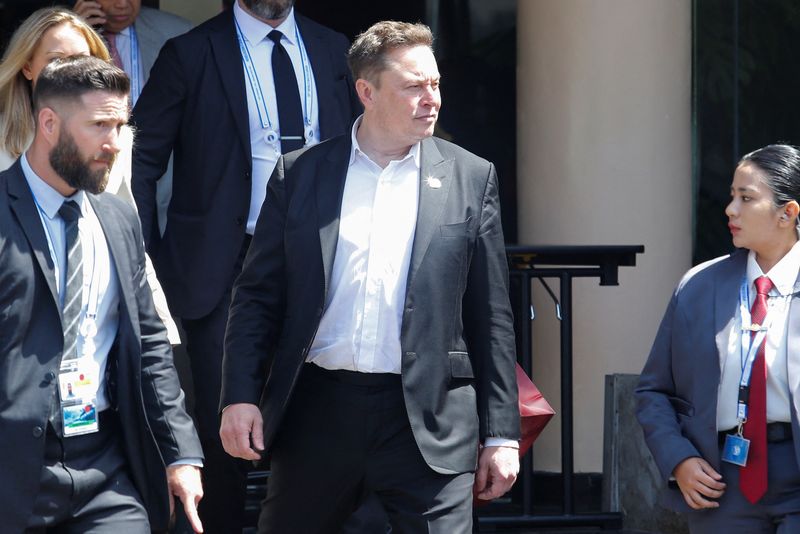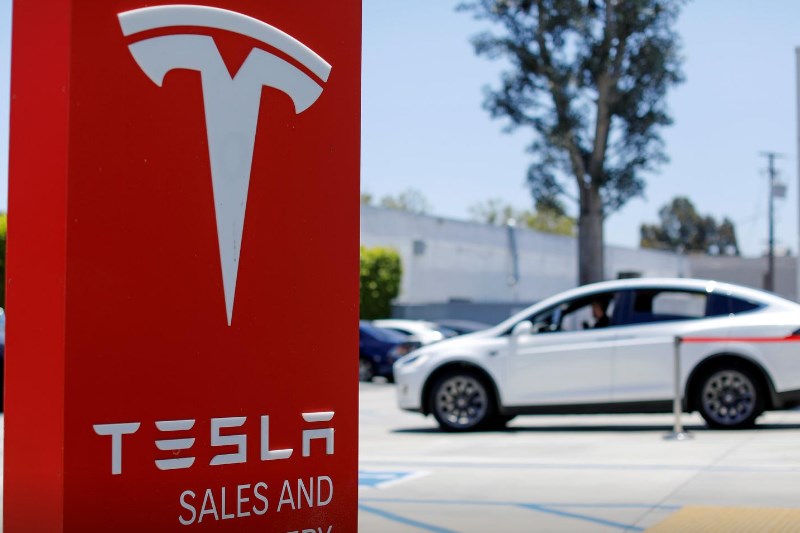By Tom Hals
WILMINGTON, Delaware (Reuters) – Tesla (NASDAQ:) shareholders will vote on June 13 to ratify Elon Musk’s $56 billion pay package, which a Delaware judge overturned in January because she found he filed the lawsuit improperly way checked. They will also be asked to approve the move of the company’s legal home from Delaware to Texas.
Below is a look at the potential legal battle standing in the way of Musk’s payday.
WHAT IMPACT WILL THE SHAREHOLDERS’ VOTE HAVE?
If shareholders reject the move to Texas and Musk’s pay, it will vindicate the court’s ruling that described Musk’s pay as “unfathomable” and would be a painful defeat for a board that critics say is dominated by Musk.
If shareholders vote to pay Musk, it will likely trigger another legal challenge. Where that challenge takes place could depend on the vote to move Tesla’s legal home to Texas.
WHEN TESLA BECOMES A TEXAS COMPANY
Lawyers for Richard Tornetta, the shareholder who sued in Delaware in 2018 over Musk’s pay, have said in court papers that they fear the shareholder vote is an attempt to use a Texas court to overturn the ruling of January to be undone.
For her part, Delaware Judge Chancellor Kathaleen McCormick (NYSE:) said on May 28 that she had been assured by Tesla’s lawyers that the company will not litigate any dispute over shareholder voting outside Delaware.
IF TESLA REMAINS A DELAWARE COMPANY
The Delaware judge has yet to decide how much to award to Tornetta’s legal team as compensation that Tesla must pay before Musk and Tesla can appeal. The shareholders’ legal team asked for $6 billion. A hearing is scheduled for July 8.
Tesla’s legal team has said a vote ratifying Musk’s pay would materially impact the Delaware proceedings, though they did not explain how. If the pay package is approved at the shareholders’ meeting, it will almost certainly be challenged by shareholders who oppose it.
McCormick could take up such a challenge in the ongoing Musk wages case or file a new lawsuit. If it were a new case, Tesla and Musk could appeal the January ruling to the Delaware Supreme Court, while the Court of Chancery would resolve the shareholder vote challenges, which could take months or even years.
TESLA’S NEW USE OF A RATIFICATION VOTE
Tesla’s ratification vote is based on Delaware law, which is intended to allow companies to clean up technical flaws in corporate transactions, such as stock sales that are not properly authorized. The company described its approach as “novel” in its proxy filing.
No one has filed a legal challenge, but Charles Elson, a former University of Delaware professor who specialized in corporate governance, said in a lawsuit that ratification cannot be used the way Tesla uses it — to find a breach of fiduciary duty by correcting a board. .
CHALLENGE OF THE VOTE
Tesla shareholders could also challenge the vote, citing Musk’s efforts to influence the vote. Musk responded “yes” on May 18 to a post on stay with Tesla.

The company filed Musk’s response with the Securities and Exchange Commission as proxy material.
Musk’s veiled threat to take AI from Tesla if he doesn’t get his paycheck could be a potential violation of corporate law, which prohibits directors and officers from seizing business opportunities for themselves that belong to the company.


